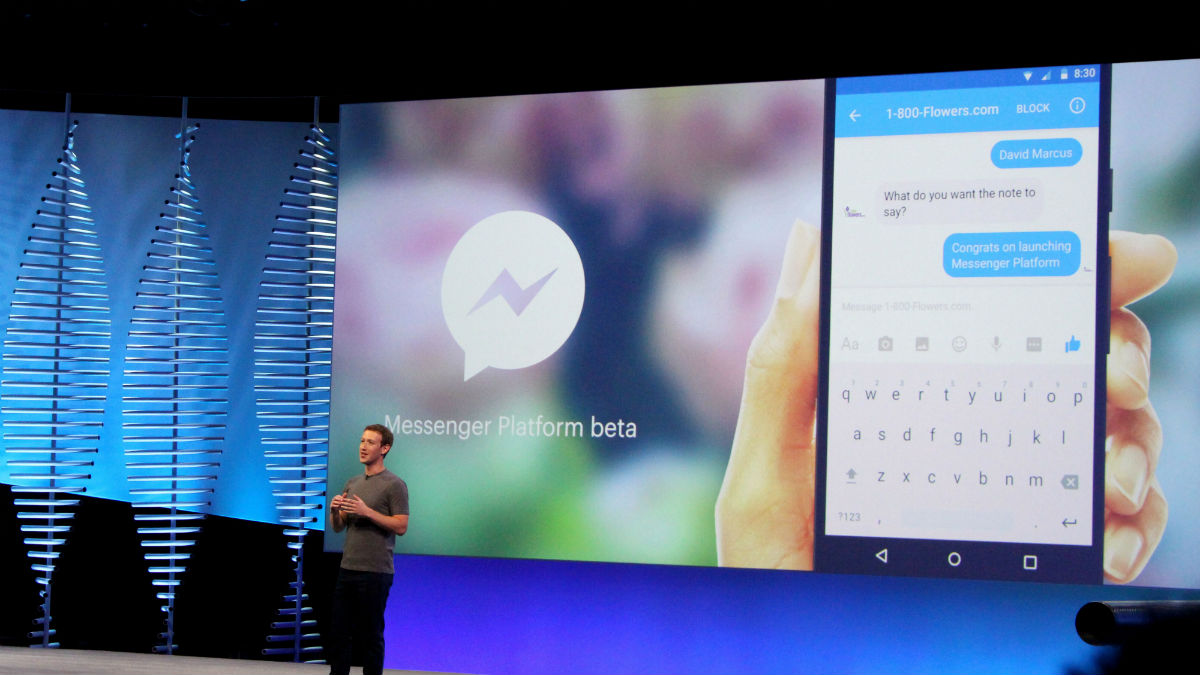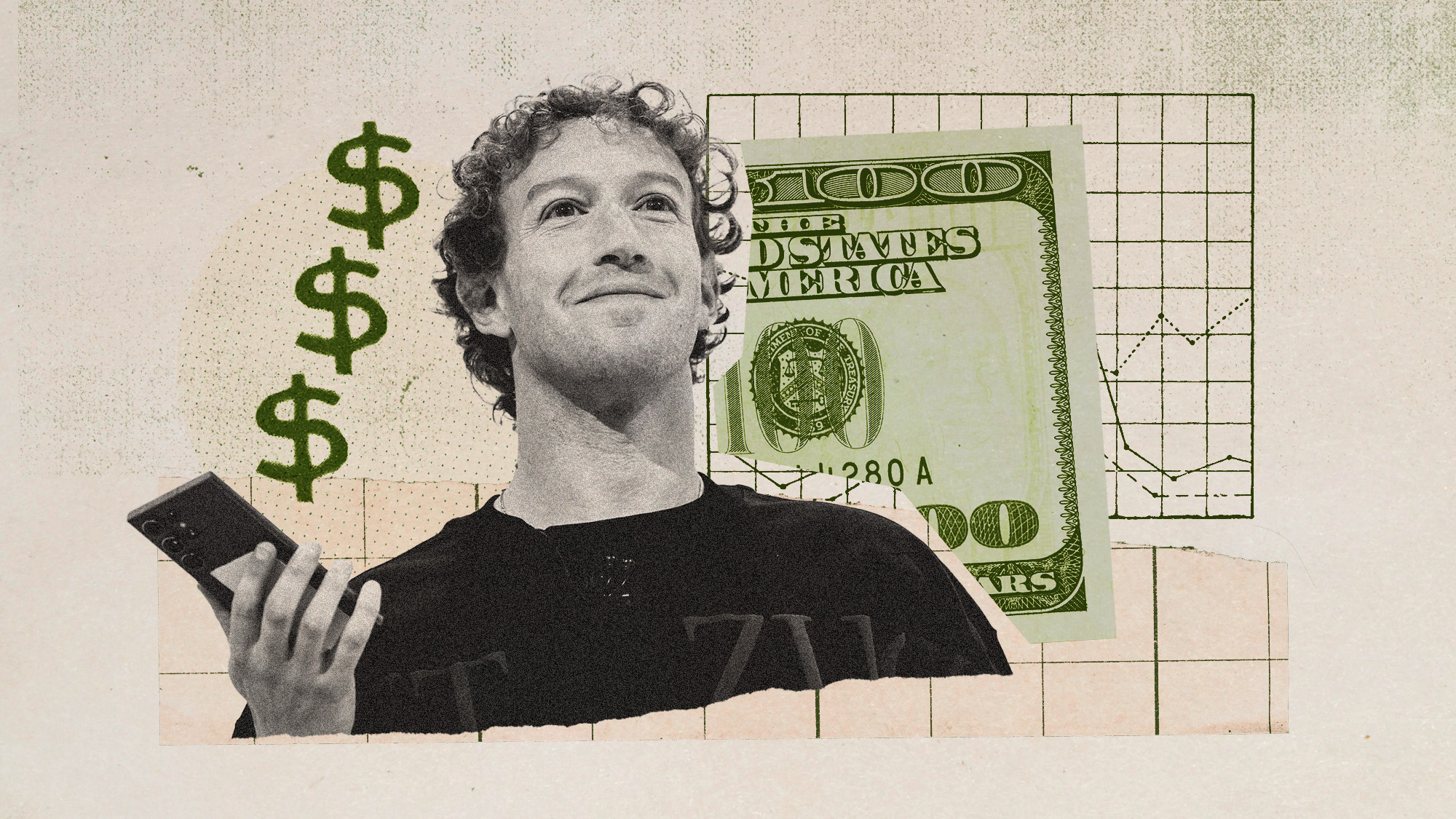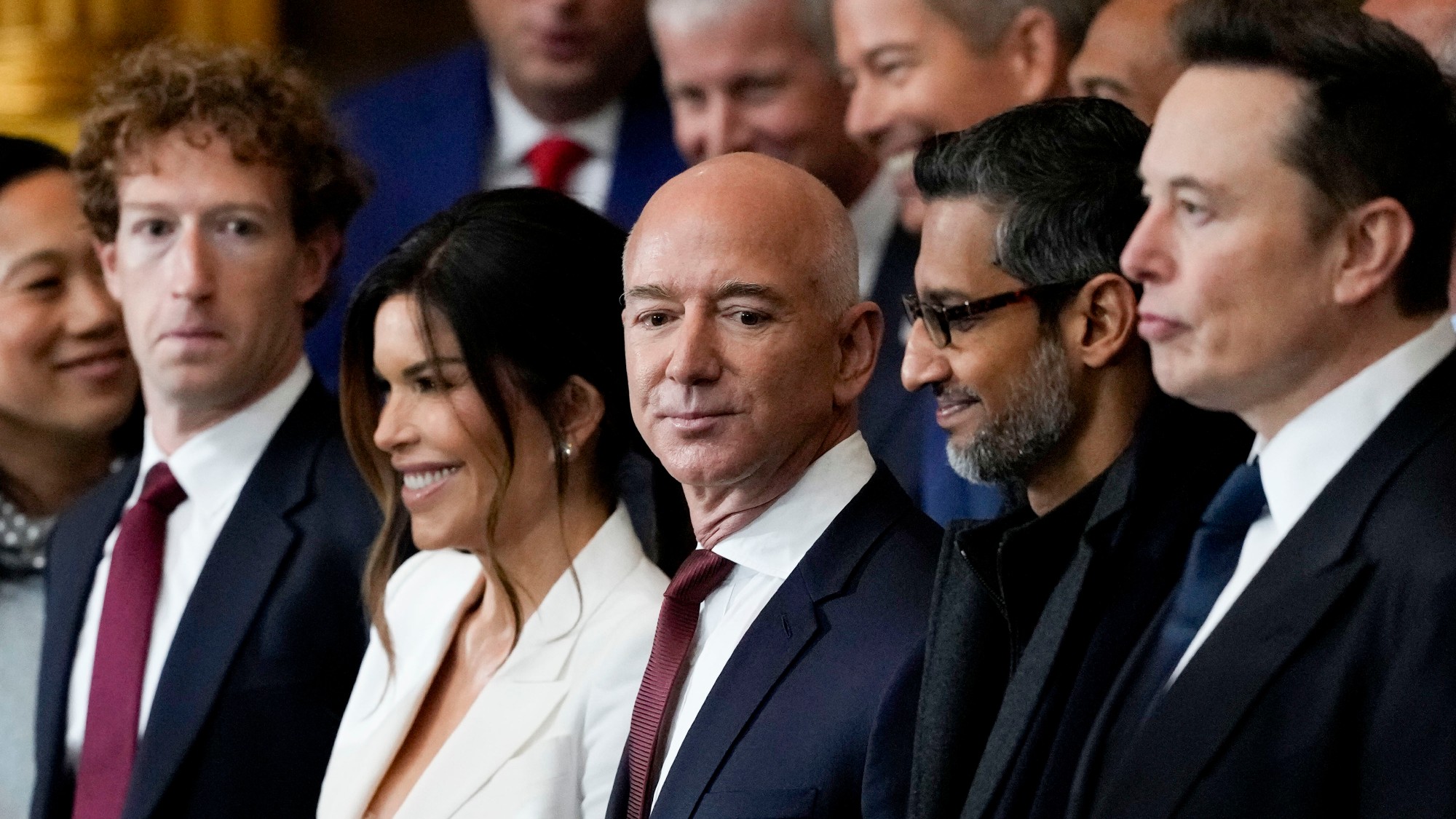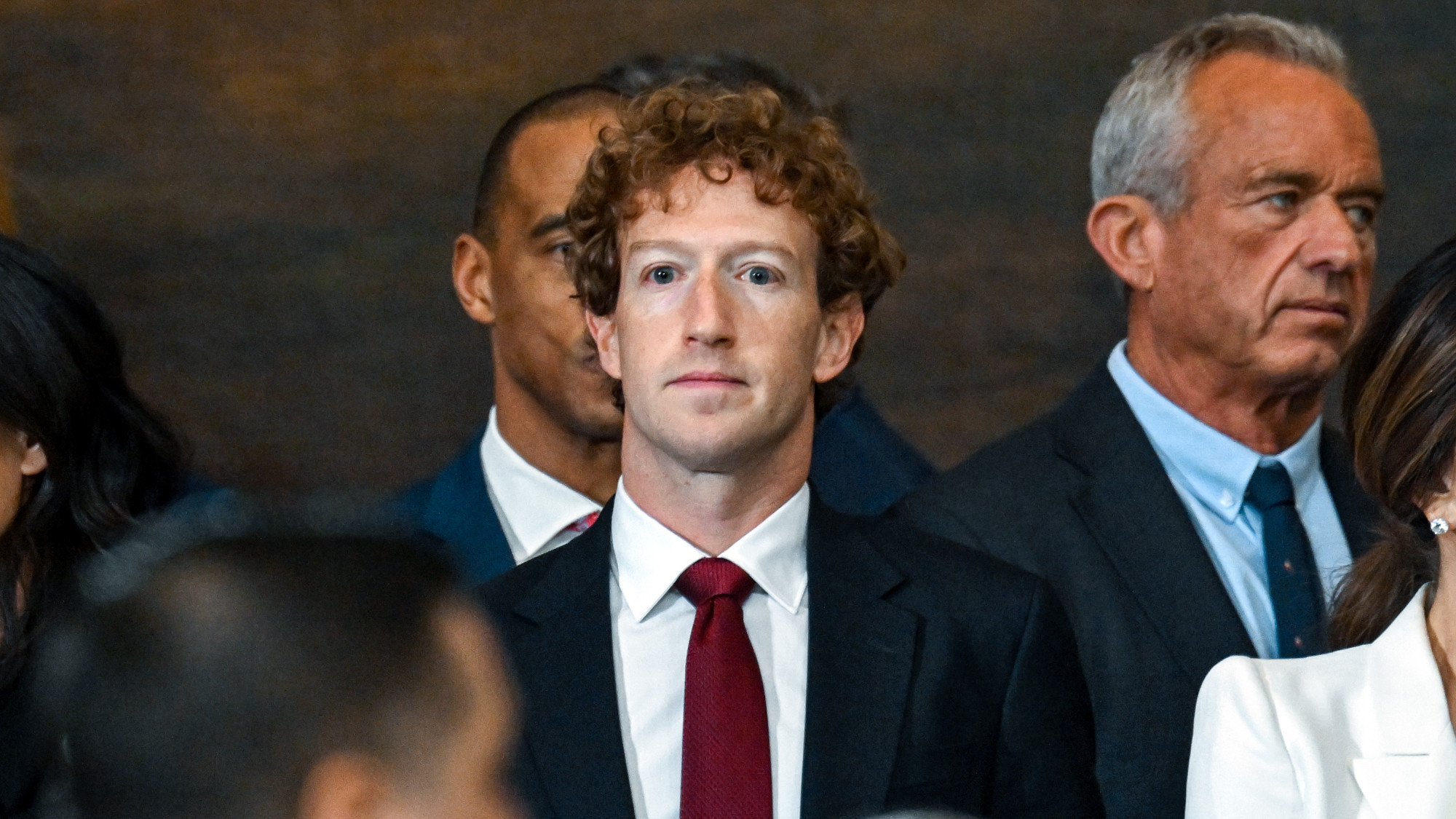Facebook launches intelligent 'chatbots'
Businesses set to ditch call centres in favour of smart interactive software

A free daily email with the biggest news stories of the day – and the best features from TheWeek.com
You are now subscribed
Your newsletter sign-up was successful
Facebook CEO Mark Zuckerberg has announced plans to open up its Messenger app to developers so that they can create so-called "chatbots" at the firm's F8 developer conference in San Francisco.
The chatbots will attempt to simulate real conversations on Facebook's Messenger platform for companies hoping to communicate with their customers. It's all part of Facebook hoping to "expand its reach in customer service and enterprise transactions", says Reuters.
According to Facebook, advances in artificial intelligence have resulted in bots far more capable of assuming a "key role in the way customers communicate with businesses".
The Week
Escape your echo chamber. Get the facts behind the news, plus analysis from multiple perspectives.

Sign up for The Week's Free Newsletters
From our morning news briefing to a weekly Good News Newsletter, get the best of The Week delivered directly to your inbox.
From our morning news briefing to a weekly Good News Newsletter, get the best of The Week delivered directly to your inbox.
Launching the service yesterday with a handful of partners, Facebook hopes to turn its Messenger app into the go-to place for consumers to contact businesses. The strategy could be good news for consumers fed up with time-consuming phone calls, but may bad news for workers as it "threatens traditional call centres and may cut personnel costs for some businesses."
According to the BBC, the conversations users will have with the bots in the early days will be structured rigidly, with the messenger bots prompting users with possible responses and things to say, but the goal is for the software to develop into something resembling "natural conversation" as quickly as possible.
Developers will be free to create their own bots, but they will all be powered by Facebook's Bot Engine – a centralised system which over time should get 'smarter' and more capable of providing natural-sounding responses to users' questions, meaning that collectively, every bot will improve. Given that over 900 million people use Facebook Messenger every month, the bots potentially have access to a huge pool of data.
The platform is more than just a consumer-to-business interface though, Facebook has plans for the service to provide automated subscription content too, such as weather and traffic updates, as well as personalised communications like receipts and delivery notifications.
A free daily email with the biggest news stories of the day – and the best features from TheWeek.com
The Guardian says that the move is "as much about making money as being social", and that if businesses use Facebook to sell more, in turn Facebook can make more money from them.
Customers will have to opt in to enable any company's bot, and for now, companies aren't allowed to use them purely for advertising purposes.
-
 Local elections 2026: where are they and who is expected to win?
Local elections 2026: where are they and who is expected to win?The Explainer Labour is braced for heavy losses and U-turn on postponing some council elections hasn’t helped the party’s prospects
-
 6 of the world’s most accessible destinations
6 of the world’s most accessible destinationsThe Week Recommends Experience all of Berlin, Singapore and Sydney
-
 How the FCC’s ‘equal time’ rule works
How the FCC’s ‘equal time’ rule worksIn the Spotlight The law is at the heart of the Colbert-CBS conflict
-
 Is social media over?
Is social media over?Today’s Big Question We may look back on 2025 as the moment social media jumped the shark
-
 Metaverse: Zuckerberg quits his virtual obsession
Metaverse: Zuckerberg quits his virtual obsessionFeature The tech mogul’s vision for virtual worlds inhabited by millions of users was clearly a flop
-
 Social media: How 'content' replaced friendship
Social media: How 'content' replaced friendshipFeature Facebook has shifted from connecting with friends to competing with entertainment companies
-
 Meta on trial: What will become of Mark Zuckerberg's social media empire?
Meta on trial: What will become of Mark Zuckerberg's social media empire?Today's Big Question Despite the CEO's attempt to ingratiate himself with Trump, Meta is on trial, accused by the U.S. government of breaking antitrust law
-
 What does an ex-executive's new memoir reveal about Meta's free speech pivot?
What does an ex-executive's new memoir reveal about Meta's free speech pivot?Today's Big Question 'Careless People' says Facebook was ready to do China censorship
-
 What's Mark Zuckerberg's net worth?
What's Mark Zuckerberg's net worth?In Depth The Meta magnate's products are a part of billions of lives
-
 What Trump's 'tech bros' want
What Trump's 'tech bros' wantThe Explainer Elon Musk, Mark Zuckerberg and Jeff Bezos had 'prime seats' at the president's inauguration. What are they looking to gain from Trump 2.0?
-
 Big tech's big pivot
Big tech's big pivotOpinion How Silicon Valley's corporate titans learned to love Trump